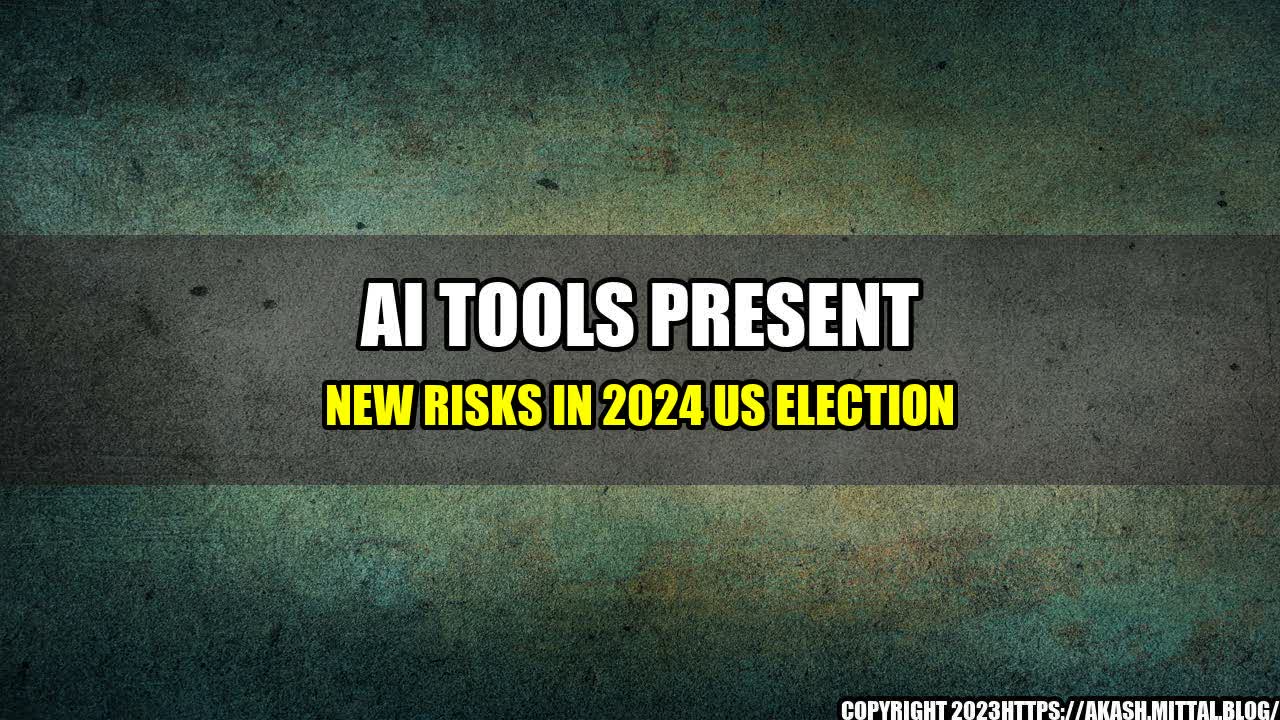Imagine a future where machines can create and spread fake news, deepfakes, and propaganda on a massive scale, manipulating public opinion and election outcomes with ease. Sounds like a dystopian sci-fi movie plot, right? Unfortunately, this future is not far-fetched or hypothetical – it is already happening.
According to a recent report by the Brennan Center for Justice, AI-powered tools are becoming increasingly sophisticated and prevalent in electoral campaigns, posing new risks and challenges for democracy. These tools can be used to:
- Identify and target vulnerable segments of the electorate
- Generate personalized disinformation campaigns tailored to individual voters
- Amplify the reach and virality of misleading or false content
- Create convincing deepfake videos, audio, and images to discredit candidates or incite violence
Here are some quantifiable examples of how AI tools can impact election outcomes:
Voter Suppression
In the 2016 US presidential election, Russian operatives allegedly used fake social media accounts and ads to suppress African American turnout in swing states, by spreading messages like "Don't vote for Hillary, she's a racist". By using machine learning algorithms, they could identify and target Black voters who were less likely to support Trump, and bombard them with anti-Clinton content. A study by the University of Oxford found that such tactics can reduce voter turnout by up to 8%, which can swing the election in favor of the opposing candidate.
Personalized Lies
Imagine receiving a tailored ad or message on your phone, that appears to come from a trustworthy source, and says something like "Joe Biden is planning to ban all guns, don't let him take away your Second Amendment rights". Even if you don't support Biden, you might be alarmed or outraged by this claim, and share it with your friends and family, creating a ripple effect of fear and misinformation. AI-powered tools can analyze vast amounts of data on your interests, demographics, personality traits, and online behavior, and use it to craft persuasive and emotionally resonant messages that exploit your biases and fears.
Manipulated Realities
Deepfake technology allows anyone with a computer and an internet connection to create convincing fake videos or images, that can be used to discredit opponents, spread rumors, or incite violence. For example, a deepfake video of a politician saying something offensive or incriminating can go viral on social media, before the truth can catch up. According to a report by Deeptrace, there were 14,678 deepfake videos online in 2020, a 900% increase from 2019. This trend is likely to accelerate in the coming years, as the technology becomes more accessible and advanced.
So, what can we do to mitigate the risks of AI-powered disinformation in the next US election, and beyond? Here are three possible strategies:
Strategy #1: Regulate and Monitor AI Tools
One approach is to impose stricter regulations and controls on the use of AI tools in political campaigns, to prevent unethical or harmful practices. For example, the European Union has proposed a new set of rules called the Digital Services Act, which would require tech companies to disclose how their algorithms work, and verify the identity of advertisers. The US Federal Election Commission has also issued some guidance on how campaigns can use disclaimers and disclosures to inform voters about the source of political ads.
Strategy #2: Educate and Empower Voters
Another strategy is to invest in voter education and media literacy programs, that teach people how to spot and debunk disinformation online. For example, some nonprofit organizations like MediaWise offer free fact-checking tools and online courses for teenagers, to help them become more critical consumers of media. The US government could also fund public awareness campaigns that teach citizens how to recognize deepfakes and fake news, and how to report them to authorities.
Strategy #3: Foster Civic Dialogue and Reconciliation
A third strategy is to promote more civil and constructive dialogue among different political groups, to reduce the polarization and hostility that fuels disinformation campaigns. This requires not only individual efforts, but also systemic changes in the media landscape, that reward quality journalism and investigative reporting, and penalize clickbait and sensationalism. Social media platforms can also play a role in promoting healthy debates and fact-checking, by developing better moderation policies and tools, and collaborating with outside experts and organizations.
In conclusion, the 2024 US election is likely to be shaped by AI-powered disinformation campaigns, that exploit the vulnerabilities and biases of voters, and challenge the integrity and trust of the electoral process. However, there are ways to mitigate these risks, through a combination of regulation, education, and dialogue. By working together and staying vigilant, we can ensure that machines serve us, rather than deceive us, in the next election and beyond.

Curated by Team Akash.Mittal.Blog
Share on Twitter Share on LinkedIn